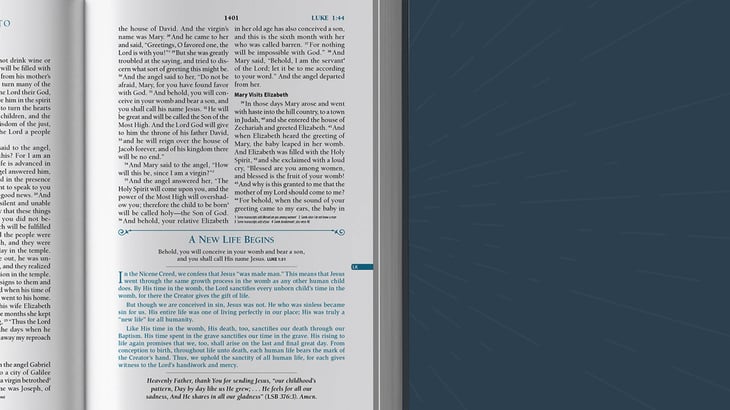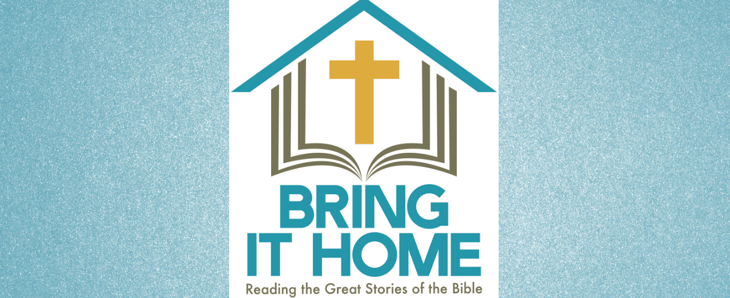Get Back on Track with Your Bible Reading Goals
One popular and worthwhile goal is to read the Bible in a new year. This often gets derailed around February as Bible readers find themselves slogging through Leviticus and Numbers. As the Israelites wander aimlessly in the wilderness, so, too, do many Bible reading goals. If you want to keep to the resolution and finish the entirety of the Bible in a year, here are a few tips that will hopefully propel you through any difficult sections.
The (Hidden) Blessing of Quarantine
I am what my friends have deemed an ambivert: a perfect 50/50 split between an introvert and an extrovert. This was confirmed with a personality test, as my friends became obsessed with them during quarantine. Of course, given the results, it was almost a guarantee that quarantine would be easy for me. After all, this halfway introvert has more than enough books on her bookshelf to survive for quite a while. But in our society of go, go, go, being forced to stop, even for introverts, can give feelings of anxiety, nervousness, or unproductivity. Still, working seven days a week isn’t natural. Even God did not work seven days a week: after a long six days of laboring, He rested.
Four Bible Verses on the Gift of Forgiveness
Have you ever fully thought about God’s forgiveness? About what it means that He has forgiven us?
I’m not good at forgiveness. I hold grudges. I say I forgive but then I don’t forget. I am not slow to anger and quick to forgive. In my sinful nature, I don’t want to forgive someone easily. They need to earn my forgiveness. I am so thankful that God’s forgiveness isn’t like mine.
Forgiveness is at the heart of our relationship with Christ. Through the forgiveness won for us on the cross, we are a part of God’s family. It’s an amazing gift that we receive through the Sacraments. Here are four verses to consider when thinking about God’s forgiveness toward us.
How to Memorize Scripture (and Why It’s Important)
If you grew up going to Sunday School or confirmation classes, I can almost guarantee that you had to memorize Bible verses. It likely went something like this: You remember you have a Bible verse due today. You quickly memorize it by repeating it to yourself a bunch of times, stumble through presenting it to your teacher, and then immediately forget it.
Many of us don’t have any Bible verses memorized besides John 3:16. This is a problem.
You’ve Got a New Bible. Now What?
The past few months, I’ve been talking about new Bibles. From trying out a devotional Bible to gifting a Bible to someone, we’ve considered why finding the right Bible can enhance your walk with God. Now that maybe you have a new Bible in your hands or you’ve decided you want to continue using your current Bible, it’s time to delve into reading it. A new Bible or renewed vigor for reading the Word of the Lord is an opportunity to reevaluate your Bible-reading habits. But where do you start?
Considerations When Gifting a Bible
In three days, she would return to Germany. I was 16 and had become friends with a German foreign exchange student the year prior. She was back in the states for a month-long visit, and we were soaking up every little bit of time we had before she left and we would be back to not knowing if we would see each other in person again. Nicky and I were alike in many ways. We both were into theater, loved to sing, and were committed to what we set out to do.
During her first-round time in America, Nicky’s host family had taken her to church. Through her stay, she had become a Jesus-follower. When she returned to Germany, she got plugged into her local church and became a key part of their ministry. Again, our lives weirdly mirrored each other, as my life had also changed after a church invite.
So here we were in my bedroom, three days before her trip ended, and she handed me a wrapped gift. When I opened it, I started crying. It was a Bible.
Why a Devotional Bible Can Help Start a Bible-Reading Habit
I consistently remember to do my devotions but rarely think about going further into God's Word. It’s definitely a problem. I love that devotions center me on Christ, guide me through passages in Scripture, and help me apply the Word to daily living. But reading directly from God’s Word is incredibly important for growth. While I do my devotions regularly, I’ve wondered how I can use that practice to launch into deeper studying of the Bible.
Enter a devotional Bible. Why does a devotional Bible make it easy to remember to study the Word? Because it incorporates devotions (which I am already doing) directly with the Word.
Here are some suggestions for using a devotional Bible to enrich your Bible-reading routine:
4 Ways to Draw Near to God in the New Year
If you are looking for a way to draw near to God in the new year, refreshing how you approach Him might be a good thing. Here are four very different approaches to some quiet or not-so-quiet time with our relational God.
Tips for Reading the Bible with Children
Children’s literacy begins early in life with an immersion in language, and biblical literacy begins in the same way. As you read Bible stories to a child, your dedicated time says, “I value you and want to spend time with you.” Your voice transmits meaning. Your eyes express feeling. And while you are reading God’s Word, the Holy Spirit is at work to nurture faith—yours and the faith of the child you love.
Bring It Home: One District’s Commitment to Faith at Home
Pastor Monte Meyer, the facilitator of parish life for the Minnesota North District, had an ambitious goal:
To get families in the Minnesota North District to read the Bible together every week.
He knew this was easier said than done. “Church leaders have tried to introduce Bible reading plans to their congregations without a lot of success,” he said. “It just gets tough to wade through all the material, some of which is difficult to understand.”
























